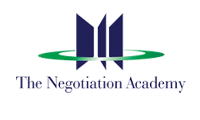| Effective Negotiation Tools |  |
| Learn the right negotiating tools to use in all your negotiations. Discover the positive way to make a sound business proposal for any situation. |
During the course of a day, how often would you find that you were actually conducting some form of negotiation? If I were to guess, you would like likely be faced with performing both planned and unplanned negotiations at least several times a day. Most likely, you've discovered that the act of negotiation is awkward and uncomfortable. Should you try too hard, the agreement falls apart, and if you ar too mellow, they think they can walk all over you.
The basis to a solid negotiation is not simply premised on a positive style, but must also entail adequate preparation, framing, an understanding and perception of the techniques and ploys of your counter parties, and must include making agreements that are solid and durable. A good negotiator always possesses the right tools so they can optimise the return on your relationships with suppliers, clients, shareholders and other important business or personal relationships. As a result, whether you're bidding for a new contract or negotiating with a business partner, your endeavours to win more will most likely require some reevaluation.
What exactly is "Negotiation?"
The dictionary defines the word, to "negotiate" as meaning "to confer with another so as to arrive at the settlement of some matter." Despite the definition, the reality is that close to 75% of individuals who conduct critical negotiations do not succeed in their negotiations and seldom have any idea how to win more during a negotiation. The majority of negotiators have learned only how to push, criticize, and attack their counterparts rather than to identify each other's strong points. Normally, criticism, rather than creativity, has become the custom during most negotiations.
Despite the many negotiating tools that we possess in our capacity as intelligent individuals, the process of negotiating poses a unique kind of problem that often leaves us somewhat perplexed. The reason could be due to our own sense of vulnerability, our fear of losing out or, worse, having to make what seems to be an unfair concession. Another reason could entail our need to control the situation which naturally interferes with our practical powers of reasoning. In any event, whether your negotiations entail a corporate situation, a simple business transaction or some personal endeavor, you will conceivably spend countless hours in some form of arbitration, mediation and bargaining throughout the course of your life.
The Right versus Wrong Syndrome
Permit me to expand on this more clearly. Imagine yourself presenting a proposal to a potential business associate. Let's say you've toiled hard on the proposal and proudly present it for consideration. After analysing it, ninety percent of the proposal is perfectly fine and meets your associate's needs, but 10% of it doesn't make the grade. The likelihood is that your associate will reject the proposal, but not because it wasn't a good proposition, but simply because they focused on the 10% that didn't meet their standards. So, instead of viewing how they might make an agreement, they have premised their overall decision on the 10% of the proposal that doesn't work, leaving you to start all over again. It is at this point where most of us terminate crucial negotiations.
This dilemma arises from the fact that we have actually been programmed into believing that someone's ideas can be improved by criticism. This is despite that experience has taught us that when it comes to negotiating, much more can be achieved when we focus on what's right rather than on what's wrong. Were we to seek and improve upon what we see and hear, rather than criticizing the other person's suggestions or ideas, we would achieve incredible results.
The reasoning and the ways in how we handle negotiations are premised upon the conditioning we've learned through our educational institutions and from our overall upbringing. It is a sad observation to note that we have culturally become so focused on what's wrong instead of recognising what's right, we often miss opportunities. Instead of working together to develop a mutually acceptable solution, negotiators simply adopt the role of judge, deciding who is right and who is wrong. When both negotiators adopt the position of being right, they're unable to hear each other's opinions. As a result conflict and frustration frequently ensues, and this can be avoided.
If You Want to Win More!
Does this mean we are doomed to remain in the half-empty cup syndrome or is there some alternative we can use to change and improve upon our conditioned negotiation skills? There are normally many barriers that can prevent a successful negotiation from occurring, but with the right tools and a little bit of "unlearning", there are many options available that will permit us to win more. As Albert Einstein notes, "The significant problems we face cannot be solved at the same level of thinking we were at when we created them." A negotiator who neglects to keep pace with today's evolving marketplace is destined to find themselves stuck in old ways. On the other hand, if a negotiator remains open to the positive aspects of ideas or suggestions offered by each side, and deliberately identifies the positive aspects first, they would find things moving swiftly forward. For example, if a negotiator quickly finds a flaw in an idea presented by the other side, even if most of the transaction is positive, then that negotiator is employing negative thinking habits to focus on what's wrong. To rectify the problem we must begin focusing more on what's right. The principle that I encourage is a win more/win more parameter. Here, all parties explore and strive to become more together than apart, i.e. win more/win more as opposed to merely win/win.
Effective Negotiation Tools!
As a negotiator, we must have intelligence and sharp focus as we start the negotiation process but more importantly we need a good measure of wisdom to broaden our perspective. Whether you are presently engaged in the process of negotiating a business deal or contract, or merely attempting to create a new set of tools to enhance your negotiation skills, the following are some tips that will assist you to start moving in a new direction.
- As you start to negotiate, avoid the temptation in attaching absolute value labels to points of view or persons/parties, e.g. good, bad, right, wrong, shrewd, co-operative, etc.
- Steer clear of labels and stereotyping and do not prejudge a person or problem before you have acquired sufficient information.
- Eliminate reactive and proactive thinking to bring more to the negotiation table. Instead, become a projective thinker.
- Don't spend a lot of time thinking about what worked in the past; historical perspectives may not necessarily be valid or applicable and often freeze our perceptions.
- Negotiation is a future oriented skill, so you need to think of negotiations as the art of the possible, not the impossible.
- Instead of defining or describing the situation, try thinking in terms of what can be achieved, i.e. "how can we develop a situation where people will be happy to purchase our products," as opposed to, "what is causing people to dismiss our web site?"
- Should someone decline a request you make, do not immediately withdraw from the negotiation but rather retreat within the negotiation.
- Should one one party becomes stressed and tense during a negotiation, lessen the rate of your speech, lower the tone of your voice, breathe deeply and more slowly, and generally present a relaxed image.
A successful negotiation is not about you getting your own way or surrendering to another. A practical approach is to remember never to leave "victims" as a consequence of your negotiation style as this may result in their exacting revenge! A successful negotiation is about obtaining a positive conclusion where both parties feel satisfied with the negotiation.
The most vital portion of a successful negotiation is that it becomes a win more/win more situation for everyone involved. With the right tools, all parties can exit the negotiation table feeling satisfied and compensated fairly. With knowledge, skills and practice, negotiating can become a truly enjoyable and winning experience.
Back to Negotiation Articles
We welcome the republication of this page's contents in part or full - we just ask that you include a clean link back to this site, to our www.negotiationtraining.com.au/training/ page.
|
Reader Comments
Average Reader Rating:
share your comment |
|
|
|






Reader Comments
Average Rating:
Total Comments: 2